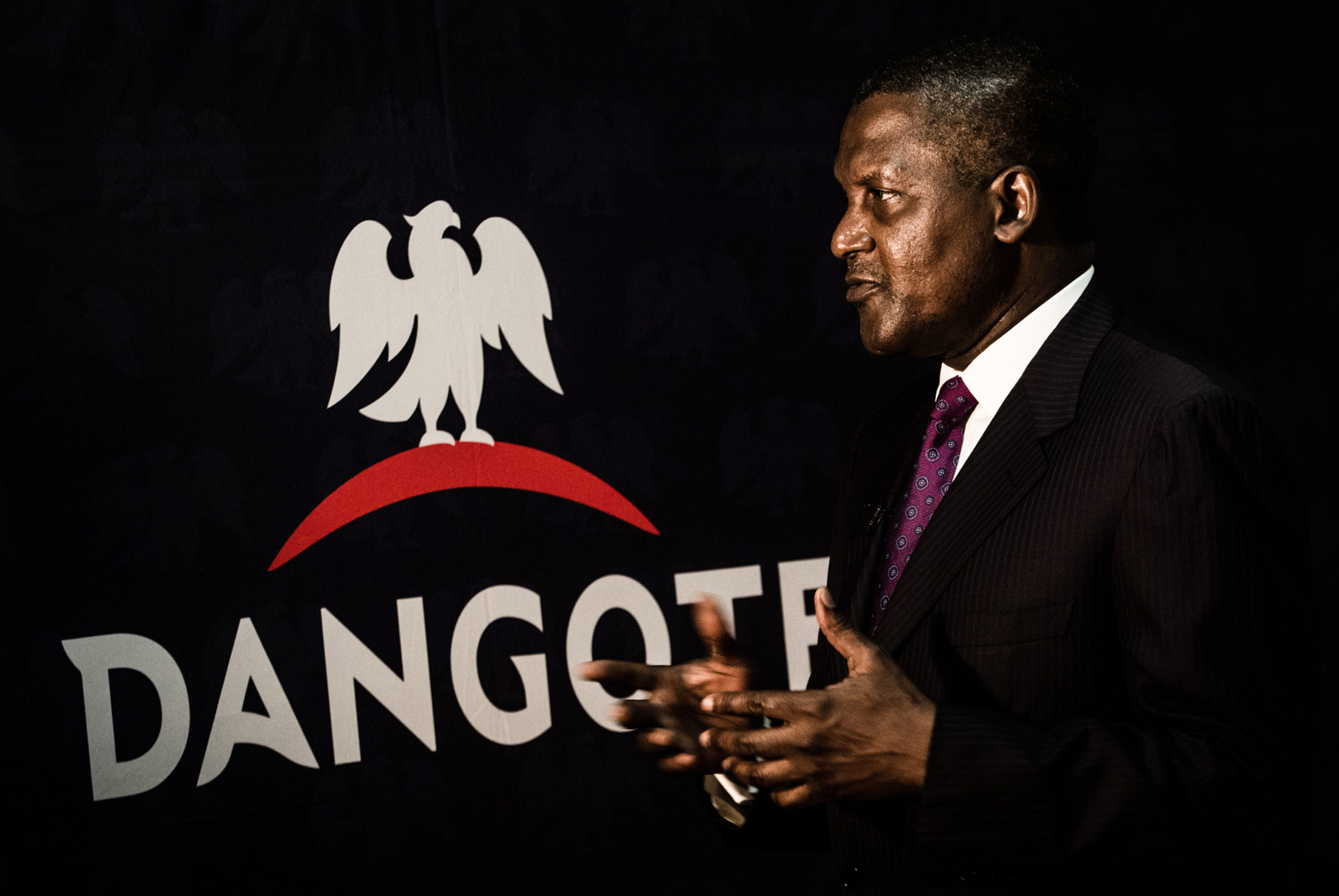- Dangote Plans $20bn Investment in Nigeria
The Dangote Group has announced plans to invest $20bn in Nigeria over the next five years.
The investment, according to the group, is expected to generate 250,000 jobs over the next five to 10 years.
The Group Executive Director, Stakeholder Management & Corporate Communications, Dangote Group, Mansur Ahmed, told journalists in Abuja on Tuesday that the aim of the conglomerate in investing the sum in the country was to give support to the diversification drive of the present administration.
To this end, he said the group would in the nearest future focus on agricultural expansion in the areas of commercial rice production and sugar cane plantations in Jigawa, Kwara, Kogi, Kebbi and Adamawa states.
“Consequently, the company has acquired 12,000 acres of land in Adamawa and arrangement is on to acquire more in other parts of the country,” Ahmed said.
According to him, the policy trust of the present administration is to reduce importation and achieve food security, adding that it was only necessary for the group to key in to the agenda in line with its corporate responsibility.
Ahmed also disclosed that the tomato paste manufacturing company in Kano would soon resume production as issues surrounding it stoppage had been resolved.
The group is also planning to raise its cement production from the current 40 million tonnes to between 75 million and 80 million tonnes per annum by the year 2020.
Ahmed explained that the cement manufacturing arm of the group was currently expanding its production capacity with new factories coming on stream across Africa in order to meet the ever growing demand for the product.
“It is our intention to continue to grow; by 2020, we should have at least 75-80 million tonnes of cement, 40 million tonnes of which should be in our plants here in Nigeria,” he stated.
The director explained that the current price of the company’s cement was dictated by the rising energy costs occasioned by the unavailability of gas.
This, he said, had forced it to rely on Premium Motor Spirit and coal as the main fuel for energy generation.

 Forex3 weeks ago
Forex3 weeks ago
 Naira2 weeks ago
Naira2 weeks ago
 Billionaire Watch2 weeks ago
Billionaire Watch2 weeks ago



 Naira3 weeks ago
Naira3 weeks ago






 Naira2 weeks ago
Naira2 weeks ago




 Naira1 week ago
Naira1 week ago




 Naira4 weeks ago
Naira4 weeks ago






 Naira1 week ago
Naira1 week ago
























